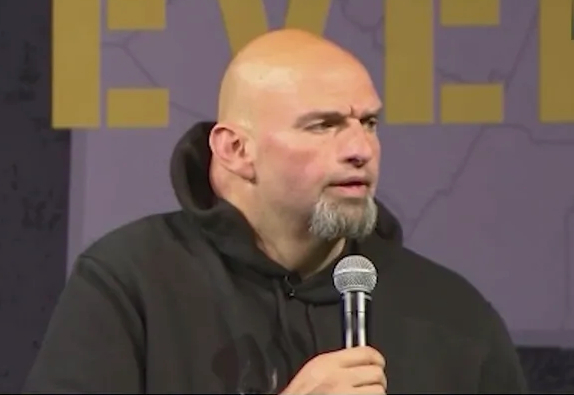Samuel Mangold-Lenett writes for the Federalist about a favorite pastime of the censorious left.
Yet another series of protests erupted against comedian Dave Chappelle this past month. Transgender-identifying individuals and their supporters insisted that platforming him could give license to other people to ridicule and physically assault trans people. One of the venues hosting Chappelle ultimately capitulated to the protesters and canceled the comedian’s show.
Chappelle, a professional comedian, has become an enemy of woke ideologues for the crime of making jokes. He has been branded as “transphobic,” and people are taking increasingly drastic measures to silence him. Attempts to silence comedians for speech deemed offensive by the left, however, have been going on long before Chappelle poked fun at “the alphabet people.”
Nearly a decade ago, a grown man wearing a red sweat suit and plastic centurion armor delivered a talk titled “2070 Paradigm Shift” to an auditorium filled with people attending Drexel University’s third annual TEDx symposium. This talk, given by comedian Sam Hyde, was an elaborate prank aimed at lampooning the self-congratulatory and pompous nature of TED Talk-style lectures and higher education in general.
Several times throughout his talk, Hyde — who broke into the mainstream consciousness as the frontman for the digital comedy troupe Million Dollar Extreme (MDE) — almost breaks character and has to hide his face from the audience to avoid bursting into laughter. During the talk, he notes that he finds inspiration in teaching African refugees how to program Javascript and encourages the audience to be hopeful as the future will grant young children the ability to 3D print “Muslim Barbie dolls” and will usher in a tolerant era of “state-enforced homosexuality.”
The performance was both hilarious and critically acclaimed. Hyde received a positive review from The Washington Post — which called his performance “subversive brilliance” and “the most glorious TED talk takedown” — and Gawker applauded the prank as a “symbolic victory in the war on bullsh*t.” However, such corporate approval was short-lived.


